
Ethereum (ETC) currently has the second highest market cap, behind Bitcoin. It also has the largest number of transaction on its blockchain by far. The Ethereum blockchain is said to be completing more transaction that all the other blockchains combined. This is due to the popularity of developing on the Ethereum blockchain and the number of altcoins that have chosen to do so. In addition to this there are many Ethereum wallets that can hold other ERC20 tokens which means choosing an Ethereum wallet is incredibly important as it can potentially hold a huge number of altcoins.
In this guide we’ll take you through the top 10 Ethereum wallets and tell you everything you need to know to securely store your Ether or other ERC20 tokens.
What is an Ethereum Wallet?
If you’re unsure of what a wallet is we have a guide that covers all the basics of cryptocurrency that would be worth a read. But simply put, it’s some software that allows you to manage your set of public and private keys (long random strings of characters) which gives you access to part of the network where your currency is held.
There are wallets for all the different cryptocurrencies out there, from a dedicated Bitcoin wallet and an Ether wallet to wallets for smaller altcoins such as the recently reviewed WaBi coin. WaBi coin is based on the Ethereum network and uses ERC20 token which mean it can be stored on an Ethereum based wallet. We’ll get into this more later in the post.
How does an Ethereum Wallet work?
An Ethereum wallet, like every other cryptocurrency wallet, will not store a tangible form of the currency. All cryptos are completely digital. So don’t think of a crypto wallet in the traditional sense. It isn’t actually holding any of your ETH coin.
All the Ether ever in existance will always exist on the network called the blockchain. What your wallet does is it interacts with the blockchain using your public and private keys. This will allow you to view how many coins you own or make transactions. When someone sends Ether to your wallet, what they are actually doing is transferring the ownership of the coins by sharing them with your wallet’s public address.
What makes a good Ether Wallet?
There are a lot of Ether wallets available today, many using different forms of storage. There are generally five type of wallet, which are:
Hardware Wallets – These are physical wallets that you can actually hold. They usually look like USB memory sticks with small screens. These have your private keys encrypted into them and are generally considered the most secure type of wallet available. Not only do they have the best level of encryption but they also have the ability to keep your cryptocurrencies in “cold” storage. This basically means they are offline and away from potential hackers.
Online Wallets – These can be in the form of an online website or even an extension for your browser. They generally have a higher risk as they are online and you might not always have direct access to your private keys. But you can access it from anywhere in the world and from any device. So these types of wallets are useful for storing everyday money if you were to choose to use cryptocurrencies to live on. These are sometimes referred to “hot” storage.
Exchange Wallets – An exchange wallet isn’t really a wallet. It’s like it’s just part of a bigger wallet that you have access to – minus a lot of the security aspects of having your own wallet. It’s where your money is stored on the exchange where you bought it from. This is generally not recommended as you don’t have access to the private keys. Also exchanges are prime targets for hacks. For example, there was an infamous exchange called MtGox where people lost fortunes in Bitcoin due to the insecurity of the exchange. In the case of MtGox, hackers manages to steal 850,000 Bitcoins.
Desktop Wallets – Desktop wallets are pieces of software that are downloaded and installed on your computer. Only that computer can then access the wallet. These are generally quite safe and some of the best beginner wallets are desktop wallets. They also have the ability to be used as decent hot or cold storage. Your coins are easy to access and yet safe enough for long term holding.
Paper Wallets – A paper wallet is a piece of paper that has your private keys written down on it. These are very safe as the only person that has access to your coins is the person with the piece of paper. If you go down this route we highly recommend writing your keys out multiple times and storing at least one copy in a safe or a safe deposit box.
When choosing an Ethereum wallet you want to make sure you have access to your private keys. This is the most important part of having a wallet and is why you will see so many people telling you not to store your Ether or other altcoins on an exchange.
It’s also important that the wallet has good security and a backup feature, such as a seed phase. You don’t want to be the person who loses a huge sum of money because they forgot to backup their information.
How the software has been developed and the development community is also important. If you don’t understand what is going on when using the software maybe it isn’t the one for you. A nice user interface and an active developer is something to keep an eye out for.
But luckily we have done a lot of the hard work for you and summaries the best Ether wallets available today.
Ledger Nano S Hardware Wallet
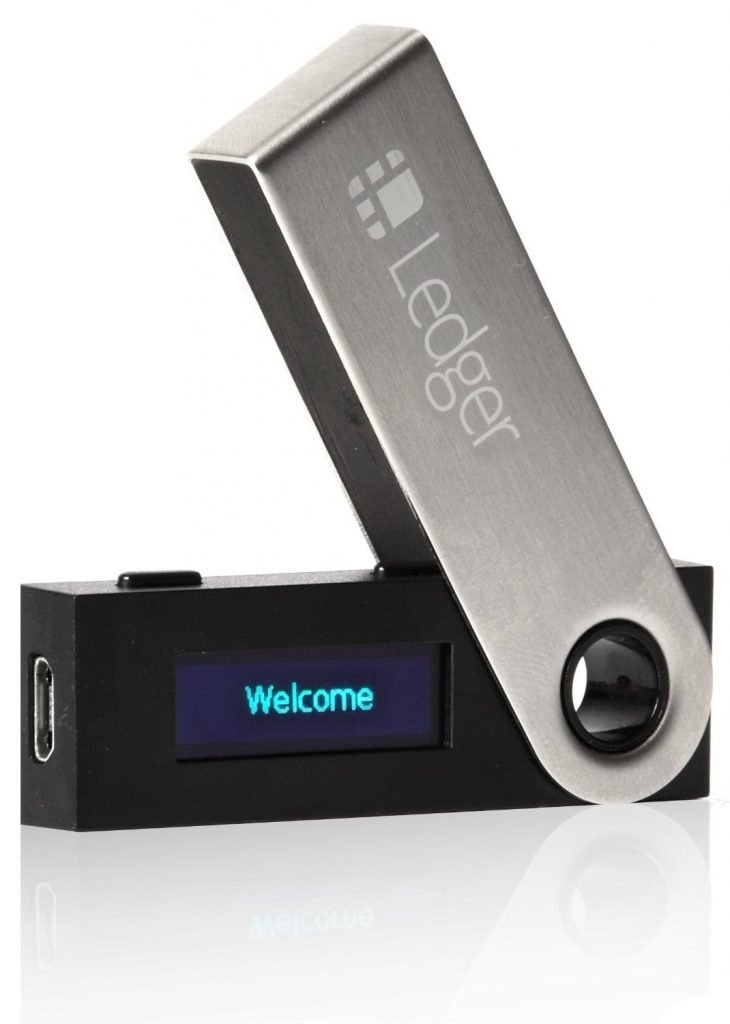
The Ledger Nano S is the first of the hardware wallets that we recommend. It looks like a small USB memory stick with an OLED screen. The interface is very simple and user friendly. It is also incredibly secure being a hardware wallet. It allows users to set a 4-digit pin on the wallet which adds another layer of security. It also lets you generate a recovery seed when you first set up the Ledger Nano S. This means if you ever lose it you will be able to input the seen into a new one so you never lose your money.
The Ledger Nano S is also a fully functioning with ERC20 tokens so you can use it to store all sorts of Ethereum based coin, not just the ETH coin itself. This is generally done my using the MyEtherWallet website.
Ledger Nano S is one of the most secure ways to store your Ethereum and other cryptocurrencies and we would highly recommend using a hardware wallet for storing large quantities of Ethereum. But it does come at a cost. Check the latest price here.
Trezor Hardware Wallet
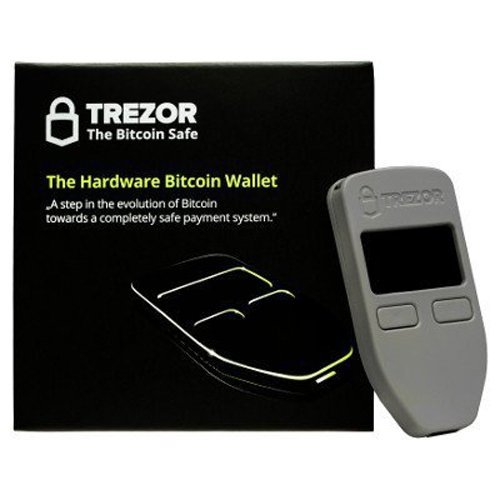
The Trezor is another hardware wallet that we would highly recommend. It looks almost like an electronic car key with a small screen. It works in a very similar way to the Ledger Nano S and is equally as secure, if not more. It allows user to set a password and use a backup seed. What it also has to make it even more secure, it a two factor authentication system.
The Trezor is very simple to set up and is very versatile. It has complete combatibility with ERC20 tokens so can store more than just standard Ether and Bitcoin. The developers are also frequently updating the firmware and are very open with the development.
Overall you can’t go wrong with either the Trezor or the Ledger Nano S. They’re roughly the same price and have very similar features.
KeepKey
Another hardware wallet is the KeepKey. This is a slightly larger and heavier hardware wallet that claims to be the most secure and feature packed hardware wallet in existence. It has similar built in security options as the Trezor and the Ledger Nano S and keeps you private keys securely on the hardware itself. It has a recover seed generator, pin protection and is generally really good at what it does.
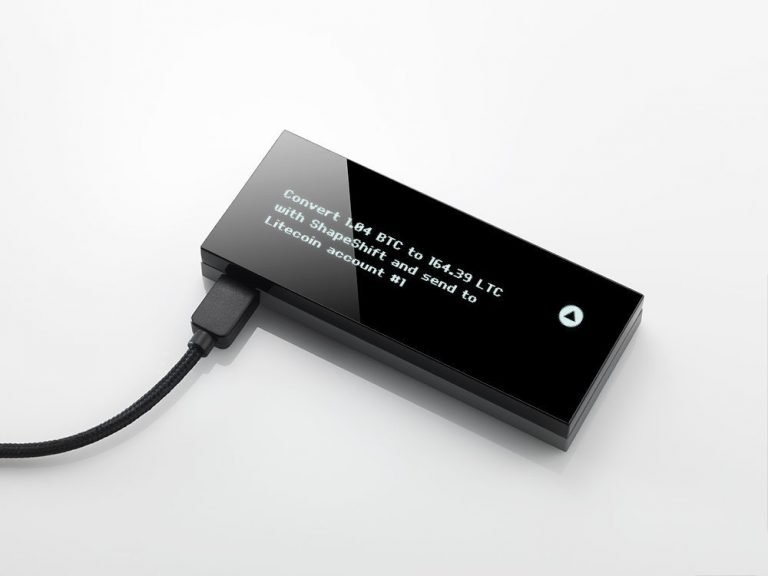
The KeepKey looks great, is easy to use and keeps your Ethereum and other coins very safe.
Check the latest price of the KeepKey.
Exodus
Exodus is a desktop only wallet. It’s incredibly well designed and the most user friendly wallet we’ve used. It can store many different cryptocurrencies including Ethereum and Ethereum Classic and is being update constantly.
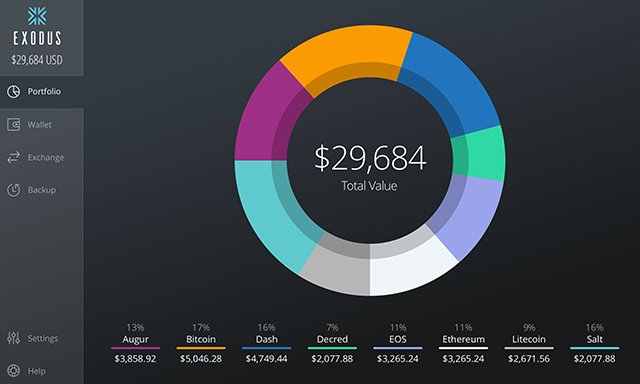
It allows users to set a password and stores your private keys on your computer rather than a server so you know your keys are safe. It also has a seed recovery function for easy backup in case you change computer. Exodus also has ShapeShift built into it, which allows you to exchange your Ether whenever you want to.
It isn’t completely open source, like other wallets and most coins, which means the community hasn’t been able to review the entirety of its code.
Overall, Exodus is one of the best desktop wallets and is a great place to start for beginners.
MyEtherWallet
MyEtherWallet is an open source web interface that allows you to create Ethereum wallets for storing Ether and ERC20 token securely offline. There are multiple ways for you to access your ETH coins, including printing out a paper wallet that you can securely store somewhere. What it has going for it over other online interfaces is that you get complete control over your private keys.
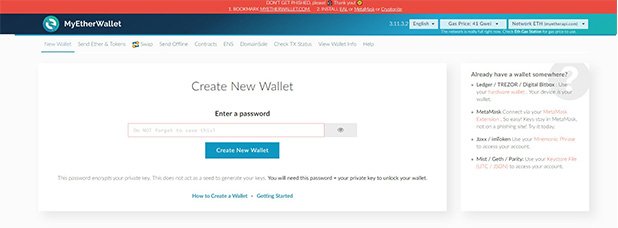
MyEtherWallet is also quite unique in that it has complete compatibility with all ERC20 tokens and is the only way to transfer ERC20 tokens to your Ledger Nano S or Trezor.
Overall we’d definitely recommend MyEtherWallet for general use but would highly recommend you get some experience with it if you’re thinking of buying some ERC20 tokens as it will be necessary. The interface isn’t the most user friendly and it can be a little confusing to start with but the wallet is very safe and we love that it’s completely open source.
Jaxx
Jaxx is very similar to the Exodus wallet but has one great advantage. It has cross platform functionality. This means that you can access your Ether on 8 different platform, such as your laptop, mobile etc. This allows your balances and wallet to be available on whatever device you are using. In addition to this all of the Jaxx code is available for anyone to view. This means it is fully reviewable and therefore problems can be fixed much sooner.

It also can store many other tokens other than just Ether and also uses ShapeShift to allow you exchange currencies from inside the wallet. The security of Jaxx is also very good, it stores your private keys on your computer or other device and never sends them to any server. You get to set a recovery seed and you can use a password for extra security.
Jaxx is a great choice for an Ethereum wallet. It has a simple, clean interface and is easy to use with great security.
MetaMask
MetasMask is a wallet that is built into a browser extension. But it also allows you to interaction with Ethereum dApps and smart contracts through MetaMask. MetaMask is currently only available on Chrome or through the Brave browser.
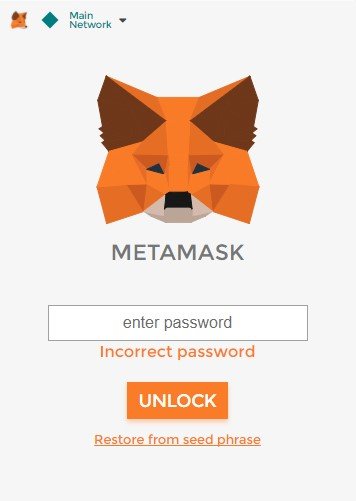
You have full control over your private keys and your information is encrypted and stored on your browser. Despite this there is an inherent risk you take with MetaMask as it is an online wallet. Don’t let this put you off, it is probably the most secure way to store Ether online and if you’re not keeping too much money on there you should be fine.
MetaMask also has compatibility with ERC20 tokens so can be used as more than just an ETH coin wallet. It has plenty of features, ample security and is very easy and convenient to use.
Mist
Mist is the official Ethereum Wallet and is designed and built by the same team that built Ethereum. It is very similar to both Exodus and Jaxx. After it syncs with all of the Ethereum nodes, it becomes usable. It uses a password system which becomes to only way to access your wallet and can never be changed.
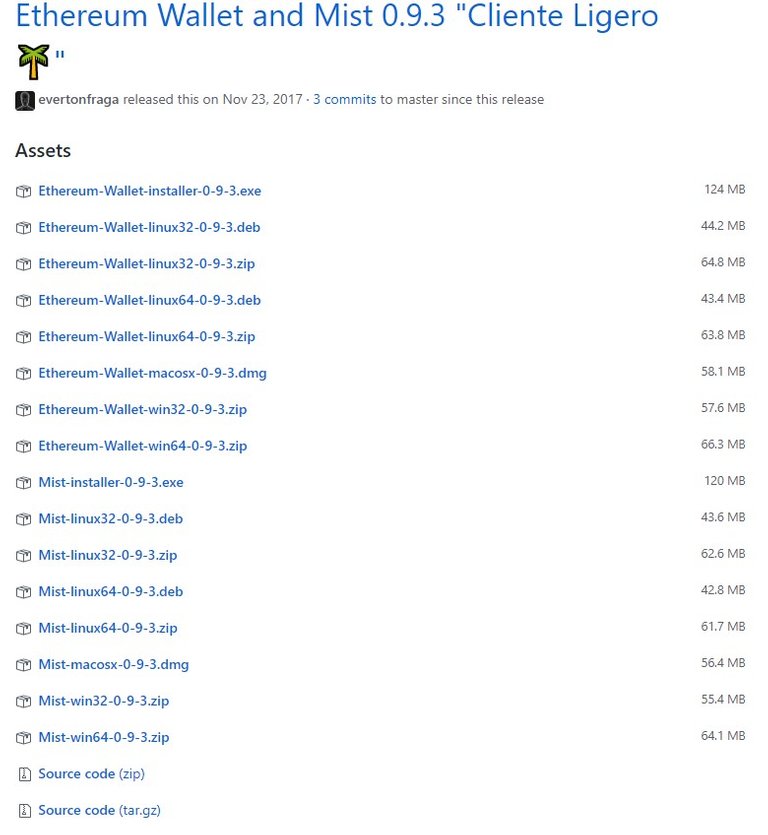
<centerThe Mist Wallet is available as a download on GitHub
It’s pretty typical wallet from there on in. The user interface works but isn’t as nice as the Exodus or Jaxx wallet. You do get the advantage of complete anonymity as you don’t need to provide and email or any personal information.
Whilst this is a good wallet and is officially endorsed by the Ethereum team we do think the Exodus or Jaxx wallet are better options.
Coinbase
Read our full Coinbase review for a detailed look at the worlds leading cryptocurrency exchange.
Coinbase is an online exchange used for buying and selling Bitcoin, Ethereum, Litecoin and Bitcoin Cash using fiat currencies. It therefore has an account system that can be classed as a wallet where you can store your money. What is good about storing money on Coinbase is that it is incredibly simple. You don’t need to download any other software or buy anything. If you purchase Ethereum through Coinbase it’s already set up for you.
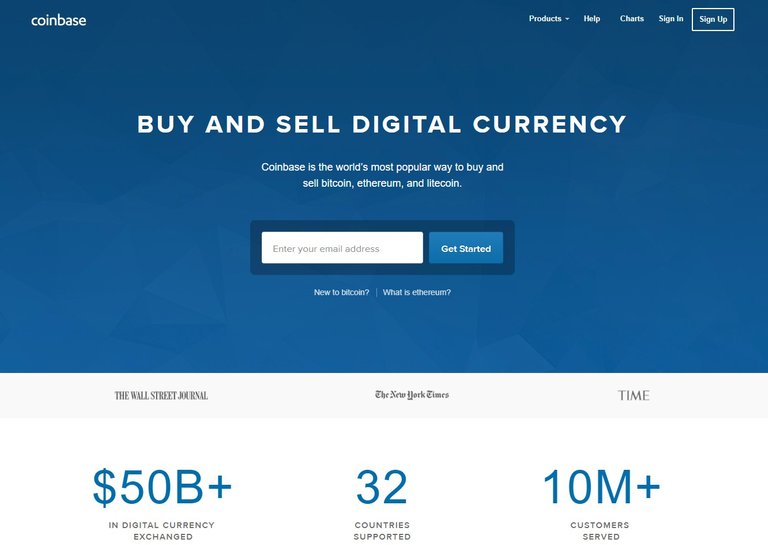
What is bad about storing money on Coinbase is that you never have control over the private keys. This is very important and quite a major downside as there is always potential for a hack. Coinbase does have two factor authentication and even a “vault” system that is used to add another layer of security but it isn’t quite the same as being the only one to access your private key.
If you’re buying and storing small amounts of Ethereum then keeping it on Coinbase is a viable option and incredibly simple. If you’re looking to buy and store large quantities of Ether then we highly recommend not using Coinbase.
ETHAddress
This is the ultimate cold storage option. ETHAddress allows you to print off an Ethereum paper wallet. It prints out a private and public key pair with the click of a button. This can then be stored in a safe place and no one will be able to touch your coins.

Whilst this is great for long term storage it is also not a realistic option if you want to ever trade your coins. To do that you would have to import your keys into a wallet that has a connection with the internet and then you can use them.
This method can only be used with Ethereum and not Ethereum classic.
Final Thoughts
We hope this has helped you get a better understanding of the Ethereum wallets that are available today. Always remember to back up your wallets and secure your private keys in a safe place. It’s also important to keep any software updated for maximum security.
If you would like to know more or think we missed anything get in contact with use in the comments below or on our contact page.